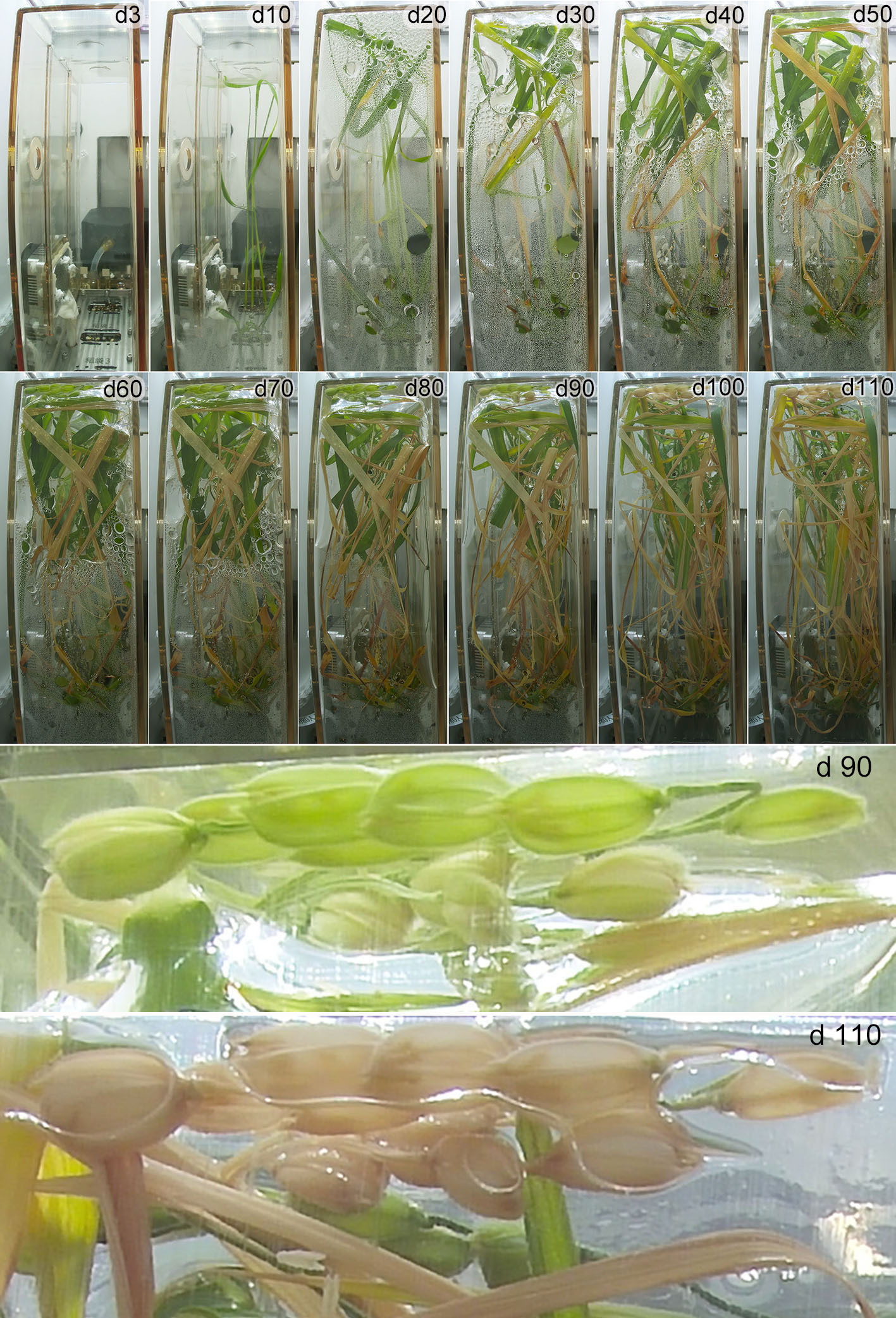Tiangong Space Lab A Research Haven
This combo photo shows representative images of rice samples at different stages in life ecology experiment cabinet of China's Wentian lab module. (PHOTO: XINHUA)
By Staff Reporters
Tiangong, China's national space station, has become the country's largest space lab platform, and thousands of scientific experiments will take place in its experiment cabinets.
The cabinets are as complicated as satellites, because they are equipped with advanced and sophisticated devices used for a range of research projects.
In general, the Wentian lab module of the space station mainly focuses on space life science research, while the Mengtian lab module is concerned with microgravity research.
The advantage of the lab lies in offering a long-term and stable environment of microgravity and radiation, said Zhang Wei, director of the Space Utilization Development Center of Technology and Engineering Center for Space Utilization, Chinese Academy of Sciences.
The gravity in Tiangong is only one 1,000th to one 10,000th of the gravity on the surface of Earth, said Zhang, adding that the essence of life and substance hidden by gravity could be revealed.
A large amount of rays like gamma rays, X rays, infrared rays and ultraviolet rays cannot be effectively observed on Earth. China is expected to launch the Xuntian telescope to conduct observation and research on heavenly bodies and the above mentioned rays, and the space station will act as its home port.
The scientific research in the national space lab is actually closely related to people's daily life, said Zhang, adding that the life-cycle cultivation of rice is an example.
Rice feeds nearly half of the world's population, and is also a major candidate crop for the life supporting system of manned deep space systems in the future. China is the first country to have completed the life-cycle growth experiments of rice in space.
A large number of scientists from other countries have expressed an interest in participating in the research on Tiangong, and nine scientific experiment projects from 17 countries, including Switzerland, Poland, Germany and Italy, have been selected.
The selection of foreign astronauts for flight missions to China's space station is also around the corner, according to Chen Shanguang, deputy chief designer of China's manned space program.



